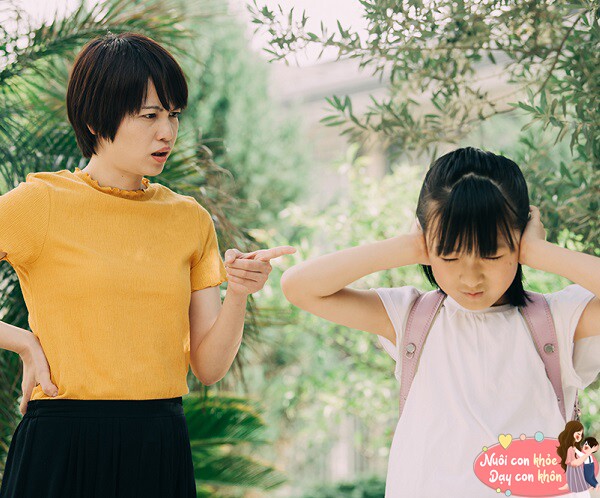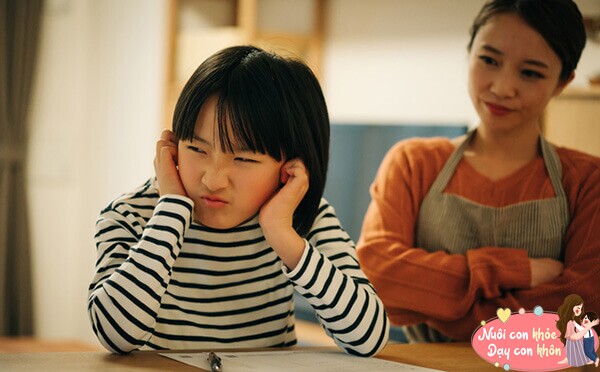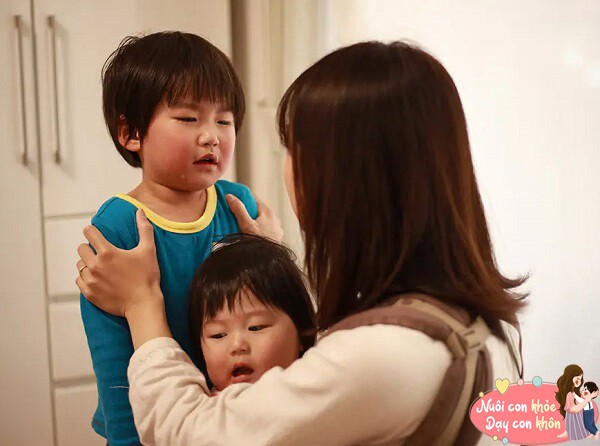A mother shares that to help her daughter develop good study habits in her first year of elementary school, she paid closer attention to correcting her posture and handwriting. She also promptly reminded her daughter whenever she lost focus.
For example, the mother would immediately scold her if she didn’t sit up straight, made her erase and rewrite if her handwriting was messy, and wouldn’t allow her to eat or sleep early if she didn’t finish her homework for the day.

However, under her mother’s strict discipline, the little girl not only failed to develop good study habits but also became indifferent and defiant. Whereas she used to eagerly share her school experiences with her mother, she now tends to ignore her and gets angry whenever she hears her mother’s voice. Her most common responses are “I know” and “Mom, stop talking.”
In reality, children need the trust and support of their parents to thrive. An education focused on correcting mistakes constantly reminds children that they are not doing well enough. If this approach is not changed, it will hinder their emotional and character development.
Particularly, experts caution against three common practices in this type of corrective education, which can do more harm than good:

Undermining Self-Confidence
While most parents want their children to grow up confident and positive, some may unintentionally undermine their self-esteem.
Criticism, whether intentional or not, can have a profound impact on a child’s psychology. As in the story above, the mother’s constant corrections, though seemingly harmless, are a blow to the child’s self-confidence.
Such actions can make a child feel inadequate, leading to a lack of self-confidence and anxiety when facing challenges.

Undermining self-confidence.
A child who is constantly criticized and subjected to an oppressive environment may appear positive and cheerful on the surface, but they could be struggling with negative emotions internally and feeling pressured to meet high expectations.
Children often hide their disappointment, leading to the formation of unhealthy habits such as avoiding social activities or being reluctant to express themselves.
Therefore, the more flaws parents point out, the lower the child’s sense of self-worth becomes. The child may fall into a state of low self-esteem, afraid to express themselves, and anxious about facing new challenges.

Distracting When Focus Is Needed
A mother shares that the most stressful period in her relationship with her son was when he was in the second grade of middle school.
Due to the intense academic pressure, she anxiously looked for ways to stimulate his interest in studying, but her son didn’t seem to listen. As the situation worsened, she sought help from a psychologist.
With the psychologist’s support, her son gradually opened up about his true feelings. He said that he didn’t hate his mother but disliked the way she talked to him, as she always demanded things directly without giving him a chance to think or express himself. After this revelation, the mother worked on changing her communication style, and their relationship improved.

Distracting when focus is needed.
In such cases, experts advise parents to remain calm and listen to their children’s thoughts before analyzing whether their behavior is right or wrong.
In reality, the highest form of parental wisdom is knowing when to refrain from correcting their children.
Moreover, this type of “corrective education” hinders a child’s ability to focus, especially when they are engaged in a serious task. Instinctively, they will use some of their energy to resist and rebel.

Causing Constant Mental Struggle
Sometimes, we tire out our children with trivial matters without realizing it. Constant reminders and criticisms about their behavior or daily habits can create pressure, making them feel constantly monitored and never good enough.
This can lead to physical and mental exhaustion, making children more anxious and vulnerable. They may feel they have to strive for perfection, which is an unrealistic and unhealthy expectation.
Overly corrective parenting can also cause internal strife. Instead of readily accepting advice, children may feel attacked and become defensive and resistant.

We may tire out our children with trivial matters without realizing it.
An effective way to change this communication pattern is to shift from nagging to asking questions. Instead of criticizing or scolding, try asking your child, “Are you aware of your issue?”
This rhetorical style of communication opens up space for children to think for themselves and feel respected and involved in the conversation.
When children feel heard and valued, they are more likely to accept and adjust their behavior.
The Four Phrases Parents Often Use That Hurt Their Children’s Feelings
“Unknowingly, parents often utter phrases that can instill fear and leave lasting impressions on their children’s minds. The following four phrases are commonly used by parents, but it’s time to reconsider their usage and explore alternative approaches to ensure a positive and empowering environment for our little ones.”
“5 Dos and 5 Absolute Don’ts of Parenting, According to the Great Master Ji Xiao Lan”
Kỷ Hiểu Lam, the esteemed “Master of All Trades” of the Qing Dynasty, was a man of many talents. With a busy career in government affairs, he was often away from home and unable to directly teach his children. Despite this, he left a lasting legacy through his writings and ideas, which continue to inspire and educate generations.







































